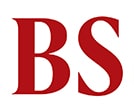Page 41 - Latest Updates on Inflation
Inflation targeting is a stupid policy
In trying to increase by a fairly random amount an index of prices that they largely can't control, central banks couldn't have done much more harm
India must stick to flexible inflation targeting, says Viral Acharya
Flexible inflation targeting policy has faced criticism recently on account of the high weighting given to food items in the inflation basket which have proven highly volatile
Lagarde makes case for aligning ECB's inflation strategy with US Fed
The ECB is widely expected to follow in the footsteps of the Fed, which said last month it would aim for inflation of 2% on average
RBI likely to keep interest rates unchanged in upcoming policy review
RBI Governor Shaktikanta Das had earlier said although there was headroom for further monetary policy action, it was important to keep "our arsenal dry and use it judiciously."
Japan's August consumer prices fall at fastest pace in four years
The core consumer price index (CPI), which includes oil products but excludes volatile fresh food prices, fell 0.4% in August from a year earlier
Federal Reserve vows to keep interest rates near zero until inflation rises
The Fed's decision drew two dissents, one from a policymaker who thought it went too far, and the other from one who thought it didn't go far enough
Covid-19: UK inflation eases to 0.2% on temporary steps to aid spending
The reading of 0.2% was slightly higher than the zero forecast by economists, although the drop from July's reading of 1% was still the biggest since 2008
RBI's 'impossible trinity' of problems: rupee, inflation, bond yields
As challenges mount, the central bank will need to strike a fine balance between managing the rupee, domestic liquidity and fiscal financing
August WPI inflation up at 0.16% after being in negative zone for 4 months
The annual rate of inflation based on WPI Food Index decreased from 4.32 per cent in July to 4.07 per cent in August
Retail inflation to come down with easing of lockdowns: CEA Subramanian
According to the government data, retail inflation rose to 6.93 per cent in July, mainly driven by rising prices of food items like vegetables, pulses, meat and fish
Inflation targeting: Indian experience may have lessons for the world
Rather than butting heads with the fiscal authority, or meekly toeing its line, the central bank should insist on pragmatic, rules-based cooperation
August inflation number could be 'unpleasant', says SBI Research report
SBI Research Report says 'it's less hopeful' of any rate cut by the central bank this fiscal.
Global economy seeing V-shaped recovery, inflation may rise: Morgan Stanley
The global economy is likely to recover to pre-pandemic levels by early next quarter, about three months earlier than previously expected, economists at Morgan Stanley said
US Federal Reserve policymakers signal comfort with higher inflation
But once the coronavirus is under better control and unemployment has come down somewhat, he said, the Fed may need to shift its accommodative policies into higher gear
Why Buffett's bet on Japan could turn on higher inflation, weakening dollar
Berkshire said late Sunday, on Buffett's 90th birthday, it owned just over 5% of each of Itochu Corp, Marubeni Corp, Mitsubishi Corp, Mitsui & Co Ltd and Sumitomo Corp
RBI steps in with measures to boost demand for bonds, cool down yields
Says it is comfortable with a rising rupee, which helps bring down import-led inflation, adds that it remains "committed to ensuring comfortable liquidity and financing conditions in the economy"
Agriculture clocks growth rate of 3.4% in Q1 despite GDP contraction
GVA at current prices at 5.7%, down from 8.6% YoY
What to expect from Q1 GDP data today? Here's what key indicators suggest
GDP data for the April to June quarter will reveal how badly the economy was hit by the coronavirus pandemic
Managing markets
Bond and currency markets would increase policy difficulties
Stagflation risks grip bond markets, high yields are here to stay: Report
The initial trigger for the spurt in the bond yields was the MPC decision to hold the rates, citing the spike in the inflation print on August 6
